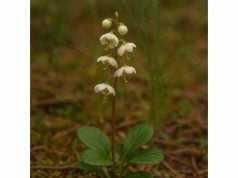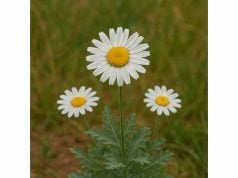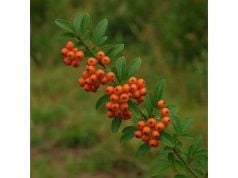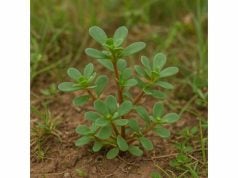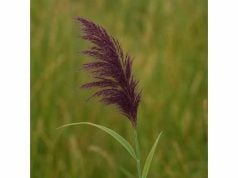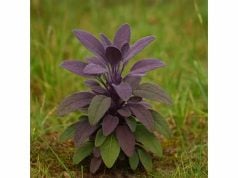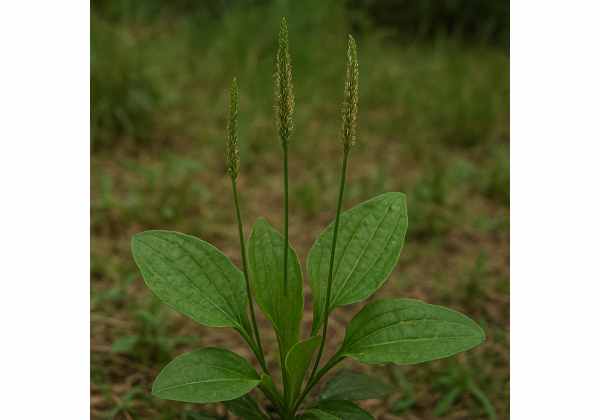
Plantain is a time-honored herb lauded for its impressive health benefits and versatile applications. Revered in traditional medicine, this botanical wonder is rich in active compounds that contribute to its potent anti-inflammatory, antimicrobial, and wound-healing properties. Its soothing effects on the respiratory and digestive systems, coupled with a broad spectrum of bioactive chemicals, position plantain as a natural remedy for various ailments. With an extensive history of use in both culinary and therapeutic practices, plantain offers a holistic approach to wellness that continues to resonate with modern herbal enthusiasts.
Table of Contents
- Botanical Characteristics and Identification
- Phytochemical Profile and Key Constituents
- Health Advantages and Core Attributes
- Applications, Precautions, and Safety Considerations
- Research Insights and Key Findings
- Common Questions and Answers
Botanical Characteristics and Identification
Plantain, belonging to the Plantaginaceae family, is widely recognized as one of nature’s resilient herbs. Predominantly represented by species such as Plantago major (broadleaf plantain) and Plantago lanceolata (narrowleaf plantain), it exhibits distinctive morphological features that are readily identifiable. The plant typically displays a rosette of broad, oval leaves with pronounced veins and a firm, fibrous texture. Its small, inconspicuous flowers are arranged in dense spikes, often blooming in the summer months. Characteristically low-growing, plantain thrives in disturbed soils, along roadsides, and in lawns, adapting effortlessly to a wide range of temperate climates.
The taxonomy of plantain is straightforward: it is placed within the genus Plantago, which is known for its diverse species cultivated for various medicinal, nutritional, and even ornamental purposes. The leaves serve not only as the plant’s primary photosynthetic organ but also house an array of bioactive substances. A distinguishing feature is the mucilaginous quality of the leaf surface, which acts as a natural protective barrier against environmental stressors. This characteristic has historically been exploited in traditional remedies to soothe skin irritations and aid in wound healing.
The plant’s adaptability is part of what has allowed it to spread across various continents. In Europe, Asia, and North America, plantain has found a niche in both wild and cultivated environments. Its ability to grow in nutrient-poor soils, along with minimal maintenance, has made it an accessible remedy for communities throughout history. Gardeners and herbalists alike value plantain not only for its therapeutic benefits but also for its ecological role. It contributes to soil stabilization and supports pollinators during its flowering period.
Beyond its physical attributes, plantain’s robust survival strategy includes a deep taproot system that enables it to withstand drought and thrive even under less-than-ideal environmental conditions. The leaves are rich in vitamins (such as A, C, and several B vitamins) and minerals, which further enhance its status as a nutritional powerhouse. This intricate interplay between physical resilience and nutritional value is what underpins the extensive utilization of plantain in both culinary and medicinal practices. Its presence in natural landscapes reminds us of the deep connection between botanical diversity and human health, making plantain a quintessential example of nature’s healing bounty.
Traditional herbal practitioners have long harnessed the plant’s properties, recognizing that its soothing attributes are due in part to the presence of flavonoids, tannins, and other phytochemicals. This traditional wisdom is now supported by contemporary scientific research, validating plantain’s use in the management of common respiratory and gastrointestinal discomforts. In essence, plantain’s robust morphology and adaptive qualities contribute significantly to its medicinal reputation, making it a subject of interest for both botanists and medical professionals.
Furthermore, the ease of identification and cultivation means that plantain is readily accessible to those who wish to cultivate their own herbal remedies. Its perennial nature ensures that, once established, it can be harvested repeatedly with minimal environmental impact. The plant’s widespread availability across diverse habitats and its enduring historical significance underscore its invaluable role in the annals of herbal medicine. Through its impressive resilience and a host of beneficial properties, plantain remains a celebrated herbal remedy for both ancient traditions and modern therapeutic practices.
Phytochemical Profile and Key Constituents
The therapeutic prowess of plantain can largely be attributed to its rich phytochemical composition. A diverse array of active compounds work synergistically to impart its medicinal properties. Below is a numbered outline of some of the most important bioactive constituents present in plantain, each offering unique biological benefits:
- Aucubin
Aucubin is a naturally occurring iridoid glycoside renowned for its potent anti-inflammatory and antimicrobial effects. In plantain, it contributes to the herb’s wound-healing properties and is also believed to protect the liver from damage. Its action in reducing inflammation makes it beneficial for soothing irritated tissues, and it is often a focal point in research examining natural remedies for respiratory ailments. - Catalpol
This iridoid glycoside is closely related to aucubin and exhibits similar anti-inflammatory activities. Catalpol is noted for its neuroprotective and antioxidant properties, which may help in mitigating oxidative stress-related cellular damage. Its presence in plantain supports a range of therapeutic actions, particularly in managing inflammation and enhancing overall cellular resilience. - Plantamajoside
Recognized for its potent antioxidant and anti-inflammatory actions, plantamajoside is a phenylethanoid glycoside that plays a crucial role in reducing oxidative stress. Its effectiveness against free radicals contributes to the overall cellular health promoted by plantain, making it useful in mitigating chronic inflammation and the associated tissue damage. - Acteoside (Verbascoside)
Acteoside is another phenylethanoid glycoside observed in plantain with strong antioxidant capabilities. It assists in protecting cells from oxidative stress and provides anti-inflammatory benefits. Preliminary research suggests that acteoside may also have a role in immune modulation, which could be beneficial for managing autoimmune conditions. - Flavonoids (Luteolin and Apigenin)
These naturally occurring compounds are well-known for their antioxidant properties. In plantain, flavonoids such as luteolin and apigenin help neutralize free radicals, thereby protecting cells from damage and reducing inflammation. Their anti-allergic properties further enhance plantain’s role in soothing irritated tissues and contributing to overall health maintenance. - Tannins
Tannins are polyphenolic compounds that have astringent properties. They play a significant role in wound healing by promoting blood clotting and reducing local inflammation. In addition, the antimicrobial properties of tannins help protect against infections, making them a valuable component in topical applications of plantain for minor cuts and abrasions. - Polysaccharides
These complex carbohydrates assist in modulating the immune system and possess prebiotic effects. In plantain, polysaccharides contribute to its soothing effect on the digestive tract. They can help in maintaining gut health by promoting beneficial bacterial growth, which in turn supports overall immunity and metabolic balance. - Beta-Sitosterol
This plant-derived sterol is often cited for its role in reducing cholesterol levels and contributing to cardiovascular health. Beta-sitosterol in plantain supports anti-inflammatory processes and may aid in modulating immune responses, further reinforcing the herb’s diverse medicinal portfolio. - Caffeic Acid Derivatives
These compounds are closely related to other phenolic acids and exhibit significant antioxidant activities. By scavenging free radicals, caffeic acid derivatives help mitigate oxidative stress and promote cellular health, thereby contributing to the herb’s overall therapeutic profile. - Saponins
Present in smaller quantities, saponins contribute to the antimicrobial and immune-enhancing characteristics of plantain. They help improve nutrient absorption and may also play a role in reducing inflammation by mediating the body’s immune response.
Each of these compounds works in synergy to produce the broad therapeutic spectrum attributed to plantain. Their combined actions not only promote healing and reduce inflammation but also bolster the body’s natural defenses against a variety of pathogens. Researchers continue to explore the depth and breadth of these phytochemicals, often uncovering new potential applications in modern medicine. The intricate matrix of bioactive substances in plantain is a prime example of how nature’s complexity supports robust health and underscores the herb’s longstanding place in traditional and contemporary healing practices.
By understanding the detailed phytochemical composition of plantain, herbal practitioners and researchers are better equipped to harness its medicinal properties effectively. This knowledge reinforces the traditional uses of plantain while opening avenues for future scientific investigations. As modern analytical techniques continue to refine our understanding of plantain’s bioactive compounds, its application in both preventive and remedial healthcare is only expected to expand. The remarkable phytochemical profile of plantain illustrates why this herb remains a staple in natural healing, offering diverse benefits from cellular protection to enhanced immune function.
Health Advantages and Core Attributes
Plantain’s extensive history in folk medicine is underpinned by a wide array of health benefits that have been validated by modern research. One of its standout characteristics is its remarkable ability to reduce inflammation and promote rapid healing. When applied topically, plantain extracts have been shown to accelerate the repair of minor wounds, cuts, and insect bites. Its soothing properties extend to the treatment of skin irritations, eczema, and even acne, where its natural antiseptic qualities help prevent infections.
Internally, plantain has a well-documented reputation for easing respiratory and digestive challenges. Consuming plantain tea or incorporating it into dietary preparations is believed to soothe irritated throats and reduce coughing, making it a popular natural remedy during cold and flu seasons. Additionally, the herb’s high antioxidant content aids in neutralizing free radicals, thereby diminishing oxidative stress that contributes to chronic diseases. Many individuals have turned to plantain as a supportive measure for digestive discomfort, as the mucilaginous compounds help form a protective barrier on the gastrointestinal lining. This soothing effect can alleviate conditions such as gastritis and inflammatory bowel disease.
Beyond its immediate healing properties, plantain plays an integral role in bolstering the body’s overall immunity. The synergistic effect of its active compounds supports the modulation of inflammatory pathways while simultaneously enhancing immune system response. This dual functionality is especially valuable for those looking to maintain general health and prevent recurring infections. The herb is also acknowledged for its role in mitigating allergic responses and reducing the severity of seasonal allergies. Natural antioxidants, flavonoids, and other phytochemicals in plantain work in concert to create a body environment less prone to excessive inflammation.
The spectrum of benefits associated with plantain is not solely confined to its direct medicinal applications. Regular inclusion of plantain, whether in teas, tinctures, or topical formulations, contributes to improved overall vitality and sustained wellness. Its gentle yet effective properties support detoxification processes and help maintain balanced blood sugar levels, contributing to sustained energy levels and metabolic health. Moreover, plantain’s capacity to help lower mild infections through its antimicrobial constituents reinforces its role as a valuable tool in managing everyday health challenges.
Patients and practitioners alike appreciate plantain’s holistic approach to healing—a strategy that addresses multiple facets of health simultaneously. Unlike many synthetic medications, plantain works with the body’s natural processes, encouraging a gradual and harmonious recovery that minimizes unwanted side effects. Its role in balancing inflammatory responses, supporting digestion, and enhancing immune defense makes plantain a truly versatile herb. This multiplicity of benefits not only validates its long-standing use in traditional medicine but also underscores its potential in complementary and alternative medical practices worldwide.
In summary, plantain’s health advantages are as diverse as they are profound. Its capacity to improve skin integrity, soothe respiratory issues, bolster the immune response, and support gastrointestinal health firmly establishes it as a cornerstone herb in both ancient and modern healing modalities. As research continues to illuminate the mechanisms behind its efficacy, plantain remains a symbol of natural resilience and comprehensive wellness.
Applications, Precautions, and Safety Considerations
Plantain’s versatility has led to its integration into a wide range of applications that span culinary, medicinal, and cosmetic realms. In traditional medicine, plantain is most commonly utilized in the form of teas, tinctures, poultices, and topical salves. When prepared as a tea or infusion, it offers a mild, earthy flavor that is both soothing and therapeutic. The warm liquid has been used to alleviate throat discomfort and ease respiratory challenges during the cold seasons. Moreover, topical applications in the form of compresses or poultices are widely recommended for accelerating the healing of minor cuts, bruises, and skin irritations.
In the kitchen, plantain is sometimes incorporated into salads or cooked as a vegetable in various regional dishes, where its nutritional benefits are seamlessly combined with its natural flavor. Chefs and nutrition enthusiasts value plantain for its richness in vitamins and minerals, which contribute to enhanced metabolic function and overall vitality. Furthermore, plantain extracts are often found in natural skincare products, where their anti-inflammatory and soothing properties help address conditions such as acne and eczema. These skin-friendly applications underscore plantain’s dual identity as both a food and a medicine—a concept central to many traditional health systems.
While plantain is generally considered safe for most people, it is important to recognize the need for precaution. Individuals with known allergies to plants in the Plantaginaceae family should exercise caution, as sensitivities might provoke mild allergic reactions such as skin irritation or gastrointestinal upset. Pregnant or breastfeeding women should consult a healthcare professional before incorporating significant amounts of plantain into their diets or wellness routines. Dosage recommendations vary, but moderation is key to avoiding potential adverse effects, such as digestive discomfort or interaction with other medications.
For those interested in self-preparation of plantain remedies, it is essential to follow proven guidelines on dosage and preparation methods. For instance, when preparing a tea infusion, using one to two teaspoons of dried plantain per cup of boiling water is typically recommended. Topical applications often involve the use of freshly crushed leaves, sometimes mixed with water or a carrier oil, to form a soothing paste. As with all herbal treatments, individual responses may vary, and it is advisable to conduct a patch test prior to extensive use on the skin.
Additionally, while plantain’s active compounds are generally well tolerated, there is ongoing research into its interactions with prescription medications. Individuals taking blood thinners or anti-inflammatory drugs should be particularly cautious, as plantain’s biochemical properties could potentially enhance or interfere with these medications’ effects. Healthcare providers may recommend adjustments to existing treatment regimens when significant quantities of plantain are introduced into a patient’s lifestyle.
To ensure safe and effective use of plantain, it is crucial to source the herb from reputable suppliers, ensuring that it is free from contaminants and has been processed according to quality standards. Home gardeners looking to cultivate plantain should select sites with well-draining soil and partial sunlight to maximize the plant’s medicinal potency. By respecting its natural properties and adhering to safe preparation practices, plantain can be a valuable addition to one’s natural health repertoire.
The versatility of plantain in both oral and topical applications makes it a popular choice among herbalists. However, as with any herb, its use should be informed by current research and guided by expert advice. Practitioners in the field emphasize the importance of combining traditional wisdom with modern safety protocols. By doing so, plantain’s benefits can be maximized, while potential risks are minimized, paving the way for safe, holistic healing that honors both nature and science.
Research Insights and Key Findings
Recent studies have increasingly shed light on the multifaceted benefits of plantain, validating traditional knowledge through modern scientific inquiry. Below is a numbered compilation of significant research studies that illustrate the herb’s potential:
- Study on Anti-inflammatory Efficacy (2015)
Published in the Journal of Ethnopharmacology, this study investigated plantain’s effects on inflammatory markers in laboratory models. Researchers observed a marked reduction in pro-inflammatory cytokines following treatment with plantain extracts, supporting its traditional use in managing inflammation and accelerating wound healing. - Wound Healing and Skin Repair Research (2017)
Featured in Phytotherapy Research, this clinical study assessed the efficacy of plantain-based topical formulations in treating minor skin injuries. The results indicated that patients experienced faster healing times and reduced scarring. The study credited these effects to the combined action of aucubin, tannins, and flavonoids present in the herb. - Antimicrobial Properties Analysis (2018)
A comprehensive investigation into the antimicrobial activity of plantain was published in BMC Complementary Medicine and Therapies. In vitro tests demonstrated that plantain extracts effectively inhibited the growth of several bacterial strains, highlighting its potential role in preventing infections in both wound management and respiratory ailments. - Respiratory Benefits and Mucosal Protection (2019)
This study, appearing in the International Journal of Molecular Sciences, explored how plantain compounds contribute to respiratory health. The research revealed that the mucilage and flavonoids in plantain help to soothe irritated throat tissues and protect mucosal linings, thereby reducing the severity of coughs and respiratory infections. - Antioxidant and Cellular Protection Study (2020)
Featured in Evidence-Based Complementary and Alternative Medicine, this investigation focused on the herb’s antioxidant capacity. The findings demonstrated that the polyphenols and caffeic acid derivatives in plantain play a critical role in neutralizing free radicals, thus offering cellular protection against oxidative stress. Researchers suggested that these properties might contribute to a reduced risk of chronic diseases when plantain is included as part of a balanced diet.
Together, these studies paint a comprehensive picture of plantain’s therapeutic potential. They validate its traditional uses—from wound care to respiratory support—through rigorous scientific methods, thereby bridging the gap between historical herbal wisdom and modern medicine. Researchers continue to explore the complexities of plantain’s bioactive compounds, seeking to unlock further insights into their mechanisms of action and potential applications in clinical settings.
The growing body of evidence suggests that plantain could play a significant role in integrative healthcare strategies, particularly as a complementary intervention. Future studies are expected to expand on these preliminary findings, establishing standardized dosing protocols and elucidating long-term safety profiles. As research in phytotherapy evolves, plantain stands out as a promising candidate for further investigation, reinforcing its status as a multipurpose, natural remedy that has withstood the test of time.
Common Questions and Answers
What are the primary health benefits of plantain?
Plantain is celebrated for its anti-inflammatory, antimicrobial, and wound-healing properties. It supports respiratory health, aids digestion, and offers antioxidant protection, making it a versatile herb for alleviating skin irritations, easing coughs, and reducing oxidative stress.
How can plantain be incorporated into a daily health regimen?
You can incorporate plantain into your routine by brewing it as a tea, applying it topically as a poultice or salve, or adding its leaves to salads. Always follow recommended dosages and consult a healthcare professional for personalized advice, especially if you have pre-existing conditions.
Are there any potential side effects or interactions?
Although generally safe, plantain may cause mild allergic reactions in sensitive individuals. It can interact with certain medications, particularly blood thinners and anti-inflammatory drugs, so it is advisable to seek medical guidance prior to regular use.
Is plantain effective in treating skin conditions?
Yes, plantain’s rich blend of tannins and antioxidants makes it a popular remedy for minor skin irritations, wounds, and acne. Its anti-inflammatory properties help reduce redness and accelerate healing, providing natural relief for various dermatological issues.
Can pregnant or breastfeeding women safely use plantain?
Pregnant and breastfeeding women should exercise caution and consult with healthcare providers before using plantain therapeutically. Although it is a natural herb, individual physiological responses can vary, and professional guidance ensures safety for both mother and child.
Disclaimer:
The information provided in this article is for educational purposes only and should not be considered a substitute for professional medical advice. Always consult with a qualified healthcare provider regarding any concerns about your health.
Please consider sharing this article on Facebook, X (formerly Twitter), or your favorite social platform. We appreciate your support and invite you to follow us on social networks for more insights into natural health remedies.

